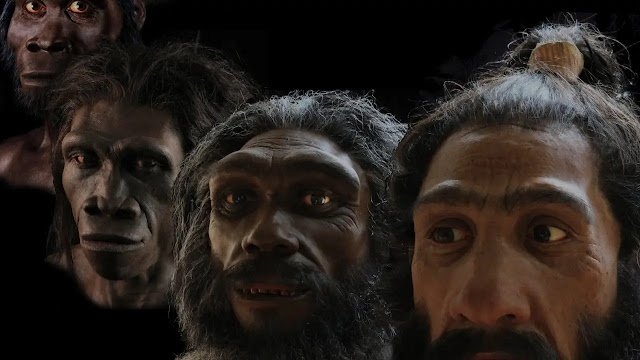
Highlight: A new scientific report suggests that humans nearly went extinct about 900,000 years ago, with the population dwindling to just 1,280 breeding individuals. This severe “bottleneck” in the human population could have lasted for nearly 117,000 years and nearly brought the species to extinction.
The current human population estimate in 2024 is around 8.1 billion. As of June 19, 2024, it is estimated to be 8,116,297,208 according to the most recent United Nations estimates elaborated by Worldometer. But, there was a time, when humans went near extinct.
Imagine a world where humanity
teetered on the edge of extinction. A new scientific report published in the
journal Science paints a startling picture of our near-demise roughly 900,000
years ago. The study suggests that our ancestors experienced a population
bottleneck, a dramatic decline in numbers, that shrank their population to a
mere 1,280 individuals – a loss of a staggering 99% [insert reference]. This
harrowing event serves as a stark reminder of the immense power of nature and
the precariousness of our existence.
Unearthing the Past: Genetic
Footprints Reveal a Brush with Oblivion
Researchers utilized a novel
technique to analyze genetic variations in modern human populations. By
studying patterns of mutations, they were able to estimate the size of
ancestral populations over time. The results revealed a sharp decline in
genetic diversity around 900,000 years ago, coinciding with a period of
significant climatic change in Africa, the cradle of humankind [insert
reference]. This period, known as the Middle Pleistocene Transition, saw a
shift towards a colder and drier climate, potentially leading to widespread
environmental disruptions.
A Perfect Storm: Unveiling the
Potential Causes
While the exact cause of the
population bottleneck remains under investigation, researchers hypothesize a
confluence of factors may have contributed:
- Climate Change: The aforementioned shift
towards a harsher climate could have drastically reduced food sources and
habitable areas, pushing our ancestors to the brink. - Resource Depletion: Increased competition
for dwindling resources, such as water and edible plants, could have
fueled conflict and exacerbated population decline. - Disease Outbreaks: A devastating pandemic,
fueled by close proximity in shrinking habitats, could have further
decimated the population.
The Power of Few: How Humanity
Clawed Back from the Brink
The sheer resilience of our
ancestors is a testament to the power of adaptation. Despite facing
near-annihilation, the remaining 1,280 individuals managed to survive and
eventually repopulate the planet. This remarkable feat could be attributed to
several factors:
- Behavioral Flexibility: The ability to adapt
hunting and gathering strategies to changing environments likely played a
crucial role. - Social Cooperation: Strong social bonds and
collaboration within groups may have been essential for survival during
harsher times. - Evolutionary Advantages: The bottleneck
might have inadvertently selected for genes that conferred advantages, such
as improved tool use or disease resistance.
A Legacy of Vulnerability: The
Enduring Impact of the Bottleneck
The population bottleneck may
have left a lasting imprint on our genetic makeup. The limited gene pool of the
surviving population could explain the relatively low genetic diversity
observed in humans compared to other primates [insert reference]. This reduced
diversity could have implications for susceptibility to certain diseases.
A Sobering Reminder: Nature’s
Power and Human Resilience
The story of our near-extinction
serves as a powerful reminder of nature’s immense power to shape the course of
evolution. It highlights the fragility of our existence and the importance of
safeguarding our environment. But it also underscores the remarkable resilience
of our species and our capacity for adaptation. By understanding our past and
the challenges overcome, we can better prepare for the uncertainties that lie
ahead.



